Nepalese Prime Minister KP Sharma Oli, who had surprisingly been the most vocal critic of India, at times even taking his criticism to personal level, using undiplomatic language, seems to have finally relented by deciding to pay an official visit to India from February 19 to 23, 2016. His tough anti-India tirade was due to border blockade by Madhesi agitators which he and his government and the party attributed to the government of India. He even, unsuccessfully and rather ill-advisedly, played the China card. Oli and his government completely overlooked the obvious fact that all the blockade related activities were happening inside Nepalese territory and that his administration had totally failed to control the law and order situation despite the loss of over 50 lives of the agitators in targeted police action.
In this backdrop, not surprisingly, the bilateral relations took a nose dive that at times, seemed irreversible. Nepal’s Dy PM and Foreign Minister Kamal Thapa, through his shuttle diplomacy, immensely contributed in the damage control exercise. The real breakthrough however, started with India welcoming the constitution amendment bill and the remarkable gesture of Prime Minister Narendra Modi who took the initiative to talk to PM Oli over telephone to extend New Year greetings and to invite the latter to visit India in 2016. Deputy PM Kamal Thapa gave the first public indication to the journalists on January 6 that preparations were under way for PM Oli’s India visit.
Preparations for the visit are in full swing with PM Oli holding a series of preparatory meetings with former prime ministers, former ministers for foreign affairs and former Nepalese ambassadors to India, on February 8. As part of the preparatory efforts, Finance Minister Bishnu Paudel visited New Delhi (Feb. 7-9, 2016). "Deliberations shall focus on making the PM's visit a success and help take the bilateral relations to new heights”, Paudel told the media before his departure for New Delhi.
During his visit, Paudel met key Indian Ministers for External Affairs Sushma Swaraj, Home Minister Rajnath Singh and Finance Minister Arun Jaitley. According to sources, during their meeting, Ms Swaraj informed the visiting minister that India was looking forward to PM Oli’s visit as it could “further strengthen” the bilateral ties. With the Home Minister, Paudel requested for normalization of supply of essential commodities.
In his discussions with Shri Jaitley, Paudel focused on bilateral trade and economic issues with the Nepalese side expressing the hope that the visit would boost trade between the two countries, official sources said. India’s assistance to Nepal for reconstruction after the devastating April earthquake also came up for discussion. India, it may be recalled, had extended $1 billion in assistance at a donors’ conference in Kathmandu. A statement issued by the Finance Ministry said, Jaitley, during the meeting, expressed hope that Indian investors in the public and the private sector will show interest across all sectors in Nepal, especially power, healthcare and road construction. Paudel thanked India for the “tremendous assistance extended by the Indian government to Nepal in its hour of need”. “Nepal is planning to establish a special infrastructure development bank and sought India’s help in this regard,” the statement added.
Nepalese Ambassador in New Delhi, Deep Kumar Upadhaya said on February 11 that the Prime Minister’s upcoming visit to India would focus on India’s full acceptance of Nepal’s new constitution and to win support for its smooth implementation. Besides New Delhi, preparations were underway for PM Oli’s visit to Mumbai, which was yet to be officially confirmed, where he was expected to address a business conclave of Indian investors and industrialists, he said. A 15-member team of the private sector will also be part of the PM Oli’s delegation.
While discussing his upcoming visit with Nepal’s business community at his official residence in Kathmandu on February 11, PM Oli said that his visit was aimed at removing misunderstanding and setting a milestone in bilateral relations. Meanwhile, leaders of various political parties suggested to PM Oli not to sign any deal that might create controversies. Nepali Congress leader Arjun Narsing KC opined that the Prime Minister should bring on board all political forces before taking any such decision. The visit has to push for sincere implementation of existing agreements and commitments between the two sides, he said.
According to Nepali Prime Minister’s office, the visit will ‘priorities relations’ between Nepal and India rather than seek new agreements. Both countries will stress on the implementation of the previous commitments and agreements at the prime ministerial level. Oli's five-day visit to India would obviously be aimed at correcting the serious divergences that emerged in bilateral ties over the last 5 months since the new constitution was promulgated last September. The task would not be easy nor the journey for quick and smooth relations since the recent developments have left deep scars. Yet, it must be recognized that Oli’s visit provides a timely and historic opportunity of shared responsibility to initiate the process of repair in right earnest. A new approach from the Nepalese side coupled with PM Modi’s abiding commitment to pursuing his dream of ‘Sabka Sath, Sabka Vikas’ in the regional context, would surely ensure success in their joint endeavor.
Published Date: 15th February 2016, Image Source: http://www.thehimalayantimes.com
(Disclaimer: The views and opinions expressed in this article are those of the author and do not necessarily reflect the official policy or position of the Vivekananda International Foundation)


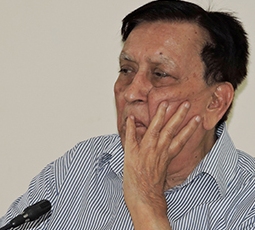
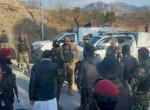

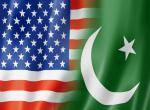
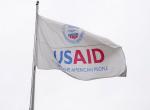


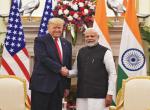
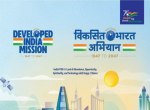
Post new comment